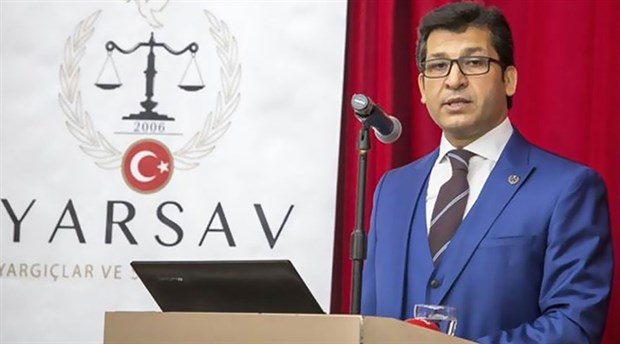The International Association of Judges (IAJ), a Rome-based organization that brings together national associations of judges, has granted its Judicial Independence Award to Murat Arslan, jailed head of Turkey’s now-dissolved Judges and Prosecutors Association (YARSAV), the Kronos news website reported.
Arslan was arrested in October 2016 as part of an investigation into the faith-based Gülen movement after being dismissed from his job at the Court of Accounts in July 2016. He was sentenced to 10 years in prison by a high criminal court in Ankara in 2019 on charges of membership in a “terrorist organization,” in reference to the Gülen movement. He is still behind bars.
The Turkish government accuses the Gülen movement of masterminding a coup attempt on July 15, 2016 and labels it a “terrorist organization,” although the movement strongly denies involvement in the coup attempt or any terrorist activity.
The IAJ granted its award to Arslan at one day before its 64th annual meeting in Tel Aviv held on Sept. 19.
Intense émotion au moment de recevoir au nom de Murat ARSLAN ce prix. On ne dira jamais assez combien Murat est un grand juge, un grand humaniste et combien la sanction qui le frappe est injuste. À bientôt mon ami pic.twitter.com/Quy6nRgUJp
— Christophe REGNARD (@ChRegnard) September 21, 2022
Christophe Regnard, honorary president of the IAJ who accepted the award on Arslan’s behalf, tweeted on Wednesday in French “Intense emotion when accepting this award on behalf of Murat ARSLAN. We can never say enough how great a judge and humanist Murat is and how unjust the sanction against him. See you soon my friend.”
In March, Turkey’s Supreme Court of Appeals upheld the prison sentence given to Arslan.
The jailed jurist was also awarded the Václav Havel Human Rights Prize 2017 by the Parliamentary Assembly of the Council of Europe (PACE).
YARSAV, which used to be a member of the European-based Magistrats Européens pour la Démocratie et les Libertés (MEDEL), was among the hundreds of institutions closed down by the government in the first state of emergency decree issued in the aftermath of the failed coup.
Turkey’s President Recep Tayyip Erdoğan has been targeting followers of the Gülen movement since the corruption investigations of December 17-25, 2013, which implicated then-prime minister Erdoğan, his family members and his inner circle.
Dismissing the investigations as a Gülenist coup and conspiracy against his government, Erdoğan designated the movement as a terrorist organization and began to target its members. He intensified the crackdown on the movement following the abortive putsch.
Following the failed coup, the Turkish government declared a state of emergency and carried out a massive purge of state institutions under the pretext of an anti-coup fight. More than 130,000 public servants, including 4,156 judges and prosecutors, as well as 29,444 members of the armed forces were summarily removed from their jobs for alleged membership in or relationships with “terrorist organizations” by emergency decree-laws subject to neither judicial nor parliamentary scrutiny.
In addition to the thousands who were jailed, scores of other Gülen movement followers had to flee Turkey to avoid the government crackdown.


